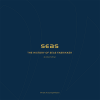Isaiah’s Christ in Matthew’s Gospel
Matthew’s Jesus is typically described as the humble, compassionate messiah. This book argues that this is, however, only half the story. Matthew’s theologically rich quotation of Isaiah 42.1-4, traditionally considered one of the four servant songs, underscores that manifest in Jesus’ powerful message and deeds, particularly his healings and inclusion of the marginalized, is the justice that was thought to accompany the arrival of the kingdom of God. The study explores modifications to the text-form of the Isaianic citations, their relationship to the surrounding context, and the rhetorical force of the final form. It argues that the quotations are bi-referential, functioning on both a narrative and theological level, and also explores the issues surrounding the troublesome ‘extraneous’ content. It arrives at the conclusion that this citation was central to Matthew’s understanding of Jesus’ life and mission. All totalled, this study offers a refreshing exploration of Matthew’s high, ethical Christology.
• A study in intertextuality, relating the Old and the New Testaments • Uses a method of interest to literary scholars as well as biblical specialists • Offers an interesting reading of key New Testament passages to emphasise Christ’s gospel of justice
ContentsPreface; List of abbreviations; 1. Introduction; 2. History of research; 3. Texts and early Jewish exegesis; 4. Isaianic formula quotations in Matthew; 5. Isaiah 42.1–4 within the context of Matthew 11–13; 6. The christological contribution of Isaiah 42.1–4; 7. Conclusion; Bibliography; Index of passages; Index of modern authors; Index of subjects.
Reviews\'… his emphasis on the ethical dimension of Matthew\'s Christology is to be welcomed. He is also to be commended on the depth of his exegesis of key Old Testament citations in Matthew, and on the extent to which he is able to draw on an extensive range of relevant scholarship. This book will be appreciated by all those with an interest in Matthew\'s Gospel, in the use of the Old Testament in the New, or in early Christian Christologies.\'
– Susan Docherty, Scripture Bulletin
\'Beaton demonstrates that Matthew\'s use of this (and other) Isaiah text(s) is more complex than previously believed, exhibiting a bi-referential function in the final form of Matthew … Beaton has certainly mad a fine contribution to the field of Judeo-Christian exegetical practices and toward a better understanding of Matthean Christiology.\'
– European Journal of Theology
- Forlag: Cambridge University Press
- Utgivelsesår: 2002
- Kategori: Religion
- Lagerstatus: Ikke på lagerVarsle meg når denne kommer på lager
- Antall sider: 258
- ISBN: 9780521818889
- Innbinding: Innbundet












